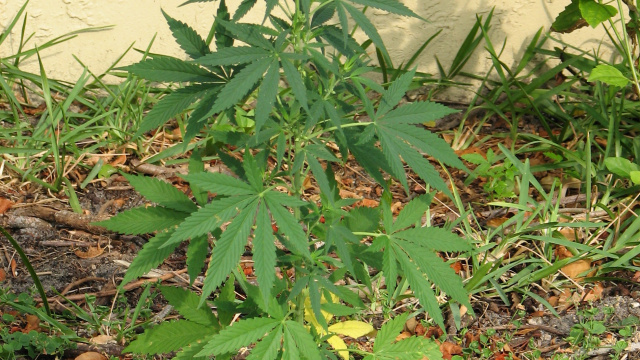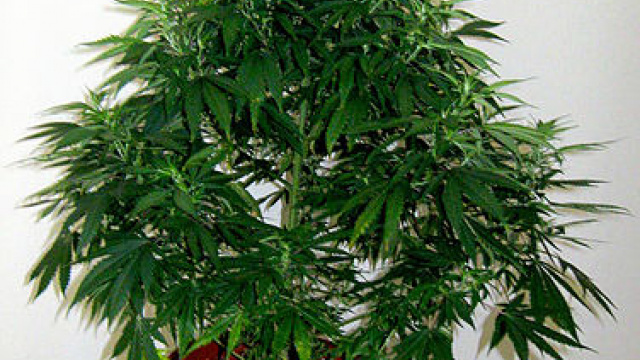 Backers of medical-marijuana bills are proposing tighter restrictions on the drug to allay opponents’ fears of widespread use, a shift that is helping such legislation advance in additional states.
Backers of medical-marijuana bills are proposing tighter restrictions on the drug to allay opponents’ fears of widespread use, a shift that is helping such legislation advance in additional states.
Illinois and New Hampshire are poised to pass some of the strictest medical-marijuana laws in the nation. They would join New Jersey, Connecticut and Delaware in banning patients from growing their own pot, increasing oversight on commercial growers and distributors, and restricting doctors from prescribing the drug for general pain.
The new restrictions are a far cry from the laws passed in the late 1990s, including in California, Colorado and Oregon, which were more ambiguous and, in some cases, made acquiring medical-marijuana prescriptions relatively simple.
In Colorado, for example, of the roughly 107,000 residents approved to use medical marijuana, pain is the qualifying condition for more than 100,000 of them. And in California, medical-marijuana prescriptions have become relatively common, as doctors can prescribe the drug for any illness “for which marijuana provides relief.”
“It’s clear that if I had proposed a California-type law, I would’ve had no chance of passing it,” said Illinois Rep. Lou Lang, the Democratic sponsor of the medical-marijuana bill now on the desk of Illinois Gov. Pat Quinn, a Democrat who says he is “very open-minded” about the bill.
Even in Canada, where medical marijuana has been legal since 2001, officials are pulling back. On Wednesday, the country is scheduled to publish rules that will soon ban patients from growing the drug at home.
The tighter state regulations appease some conservative lawmakers and governors hesitant to appear soft on crime, experts said, while still satisfying most medical-marijuana advocates, including patients and doctors.
From 1996 to 2008, the first 13 states to legalize medical marijuana allowed patients to grow the plant themselves and doctors to prescribe the drug for general pain, according to the Marijuana Policy Project, which tracks and advocates for medical-marijuana laws.
If Illinois and New Hampshire pass their laws as expected—becoming the 19th and 20th states to do so—five of the seven most recent medical-marijuana states would ban home cultivation and exclude or limit pain as a qualifying condition.
“There is suspicion about medical marijuana that it’s a foot in the door to full legalization,” said Sam Kamin, a law professor at the University of Denver. The new laws enable politicians to tell skeptical voters that “what we really want is sincere, well-regulated medical marijuana.”
Yet that suspicion isn’t without merit. In Colorado and Washington, two of the first states to allow medical marijuana, voters legalized recreational pot use in November. The states are setting up rules so retailers can begin selling the drug to anyone 21 and older next year.
Supporters of the Illinois bill say it would be the toughest such law in the nation—a claim used by proponents of similar bills elsewhere. The law would exclude minors, ban patients from growing their own pot and authorize doctors to prescribe the drug only for 33 serious medical conditions, including cancer, glaucoma and HIV/AIDS.
The Illinois bill would also give law-enforcement the authority to access to 24-hour surveillance video of the state’s licensed growers and revoke the driver’s license of any marijuana patient who refuses to undergo a sobriety test during a traffic stop.
The Illinois Association of Chiefs of Police said that though the bill could be worse, it opposes it. “It’s a lesser of two evils, maybe, but something we’re still fighting against,” said John Kennedy, the association’s director.
In New Hampshire, a conference committee reconciled the House and Senate versions of a medical-marijuana bill on Tuesday, bowing to demands from Democratic Gov. Maggie Hassan, including that patients cannot grow their own pot. The governor said she would sign it.
In New York, the legislature’s lower house recently passed a medical-marijuana bill. Aiming to get it through the more conservative Senate, this year’s bill is significantly more restrictive than past versions.
“We’re aiming for a very tightly regulated piece of legislation, which really will be the toughest in the nation,” said a sponsor of the bill, Democratic Sen. Diane Savino.
Some laws are so restrictive that getting the drug to those who need it has been difficult, advocates say. In New Jersey, only one dispensary has opened since its law passed in 2009, in part due to tight restrictions, including that the first six shops be nonprofit. So far, just 126 of the nearly 1,000 approved patients are obtaining marijuana legally, the state said.
Mike Miceli, a 32-year-old auto technician in Jackson, N.J., said marijuana is the only drug that puts his painful Crohn’s disease into remission. After being put on a waiting list for months, he drove in March to Maine, where pot dispensaries accept prescriptions from other states. Then, last month, Mr. Miceli was arrested during a traffic stop for possession of marijuana, despite his medical-marijuana card, and faces up to two years in jail.
Mr. Miceli said his attorney is optimistic the court will accept his medical-marijuana prescription as a legal defense, but he still will owe thousands of dollars in legal fees.
Source: Wall Street Journal (US)
Author: Jack Nicas
Published: June 19, 2013
Copyright: 2013 Dow Jones & Company, Inc.
Contact: [email protected]
Website: http://www.wsj.com/



Leave a Reply